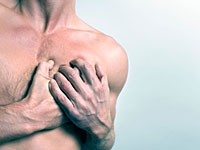
(OMNS) People with severe asthma have low blood concentrations of ascorbate (vitamin C), particularly men [1] and children [2].
Effective asthma treatment is readily available with cheap, safe and convenient vitamin C. The only requirement is to take enough vitamin C to be effective. Typical dietary quantities and low supplemental doses do not work. Robert F. Cathcart III, M.D., who has treated many asthma sufferers, says “Asthma is most often relieved by bowel tolerance doses of ascorbate (vitamin C). A child regularly having asthmatic attacks following exercise is usually relieved of these attacks by large doses of ascorbate. So far all of my patients having asthmatic attacks associated with the onset of viral diseases have been ameliorated by this treatment.”[3]
If you want asthma relief, consider trying this:
Go to a discount store and buy a large bottle of 1,000 mg vitamin C tablets. The cost should be less than $15.
Beginning when you awake in the morning, take 1,000 to 2,000 mg of vitamin C every 30 minutes and continue doing so until you have a single episode of loose stool (not quite diarrhea). If you haven’t had loose stool after 15 hours on this dosage, increase the vitamin C to 3000 mg every 30 minutes.
After you have a loose bowel movement, reduce the dosage to 2,000 mg of vitamin C every hour. You will quickly find the dosage that is right for you. Adjust the dosage of vitamin C downward to stay below the dosage that will cause loose stool and adjust it upward to relieve asthma symptoms. The usual maintenance dosage to remain asthma-free is 15,000 to 50,000 mg of vitamin C per day taken in eight equally divided doses.
People with asthma should also avoid tobacco smoke, minimize stress in their lives and minimize their consumption of junk foods, meat and dairy products.
Remember:
Vitamin C replaces antibiotics, antihistamines, antipyretics, antitoxics, and antiviral drugs at saturation (bowel tolerance) levels. It reduces inflammation.
A vitamin can act as a drug, but a drug can never act as a vitamin.
Continue reading >>



